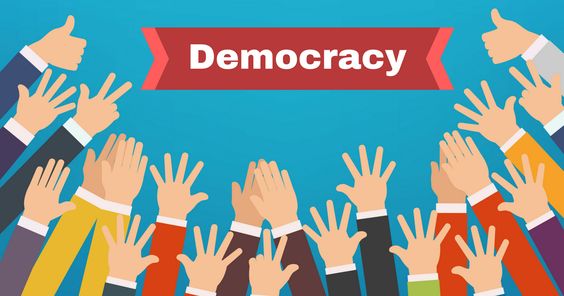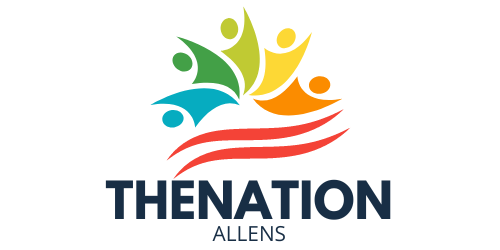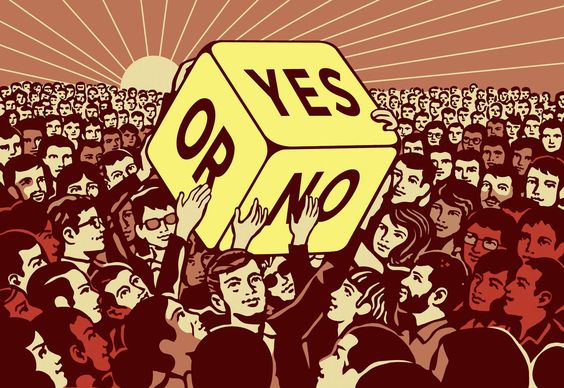What are the 4 Types of Democracy: Complete Guide

What are the 4 Types of Democracy
There are actually more than four types of democracies, but here are four of the most common:
-
Direct Democracy: This is a system where citizens directly vote on laws and policies. It’s often considered the purest form of democracy,
-
Representative Democracy: This is the most common type of democracy today. Citizens elect representatives to make decisions on their behalf. This is the system used in the United States, India, and many other countries.
-
Participatory Democracy: This is a form of democracy that encourages widespread citizen participation in political decision-making. It can involve things like town hall meetings, citizen juries, and initiatives. Read about What is the Basic Concept of Politics
-
Pluralist Democracy: This is a form of democracy that recognizes the role of special interest groups in the political process. These groups represent different segments of society, and they compete to influence government policy.
It’s important to note that these are just four ideal types. In reality, most democracies are a mix of different elements. For example, the United States is a representative democracy with some elements of direct democracy, such as ballot initiatives.
Direct Democracy
Direct democracy is the purest form of democracy where citizens have direct control over decision-making. In this system, all eligible citizens participate in making laws and policies directly rather than through elected representatives.

Historical Examples
Ancient Athens is the most notable example of direct democracy. Citizens would gather in assemblies to discuss and vote on important issues. Although only a fraction of the population (free male citizens) could participate, it laid the groundwork for future democratic practices. Discover about What is Canada Official Name
Modern Examples
Today, direct democracy is rare but can be seen in certain aspects of governance, such as referendums and initiatives. Switzerland is a prime example, where citizens regularly vote on national and local issues.
Representative Democracy
In representative democracy, citizens elect representatives who make decisions on their behalf. This system is more practical for larger, more complex societies where direct democracy would be cumbersome.
Definition and Function
Representative democracy allows for a more manageable decision-making process by entrusting elected officials to represent the people’s interests. This form of democracy is prevalent in many countries, including the United States, India, and Germany. Don’t Miss to Check Out Our Website: THENATION ALLENS
Advantages and Disadvantages
The main advantage is efficiency in governance and policy-making. However, it can lead to issues like politicians not always acting in the best interests of their constituents, leading to a disconnect between the government and the people.
Examples Around the World
Countries like the United Kingdom, Canada, and Australia operate under a representative democracy, showcasing various forms of parliamentary and presidential systems.
Constitutional Democracy
Constitutional democracy is characterized by the existence of a constitution that outlines the framework of the government and guarantees individual rights.
Explanation and Key Features
A constitution provides a legal foundation for governance and limits the powers of the government. This ensures a balance between majority rule and the protection of minority rights.
Importance of a Constitution
The constitution acts as a safeguard against the abuse of power and helps maintain the rule of law. It is a critical component that supports the stability and fairness of the democratic process.
Examples and Case Studies
The United States Constitution is one of the most well-known examples, providing a detailed structure for government operations and individual liberties. Other examples include the German Basic Law and the Constitution of South Africa.
Participatory Democracy
Participatory democracy emphasizes broad participation of citizens in the political process. It aims to create opportunities for all members of a community to make meaningful contributions to decision-making.
What is Participatory Democracy?
This form of democracy encourages active engagement and involvement from the populace in governmental and political activities beyond just voting.
Key Characteristics
It includes mechanisms like public consultations, citizen assemblies, and community organizing, promoting inclusivity and transparency in governance.
Implementation in Modern Society
Participatory democracy can be seen in local government practices, such as town hall meetings and community boards, where citizens have a direct say in local affairs.
Comparing the Four Types of Democracy
Each type of democracy offers unique advantages and faces distinct challenges. Direct democracy is ideal for small communities, while representative democracy suits larger nations. Constitutional democracy ensures the protection of individual rights, and participatory democracy fosters active citizen involvement.
Key Differences
- Direct Democracy: Citizens vote directly on laws.
- Representative Democracy: Citizens elect officials to make decisions.
- Constitutional Democracy: Governance is based on a constitution that protects rights.
- Participatory Democracy: Focuses on active citizen engagement in the political process.
Situational Effectiveness
The effectiveness of each type depends on factors like population size, cultural context, and the specific needs of the society.
The Evolution of Democratic Systems
Democratic systems have evolved over centuries, influenced by various philosophers and historical events. From the early days of Athens to the modern digital age, democracy has continually adapted to meet the changing needs of societies.
Historical Development
The Magna Carta, Enlightenment thinkers like John Locke and Jean-Jacques Rousseau, and revolutions in America and France have all played significant roles in shaping democratic ideals.
Influence of Philosophers and Thinkers
Philosophers have provided the intellectual foundation for democracy, advocating for principles like liberty, equality, and justice that are integral to democratic systems.
The Role of Technology in Modern Democracies
Technology has profoundly impacted modern democracies, from digital voting systems that ensure accurate and efficient elections to social media platforms that amplify public opinion.
Digital Voting Systems
These systems have the potential to make voting more accessible and secure, though they also raise concerns about cybersecurity and voter privacy.
Social Media and Public Opinion
Social media enables real-time engagement and mobilization but also presents challenges like misinformation and echo chambers.
Challenges Facing Democracies Today
Despite their strengths, democracies face several challenges, including political polarization, voter apathy, and the influence of money in politics.
Political Polarization
Increasing divisions between political ideologies can hinder effective governance and compromise democratic processes.
Voter Apathy
Low voter turnout weakens the democratic mandate and can lead to unrepresentative governments.
Influence of Money in Politics
The growing role of money in political campaigns raises concerns about the integrity of democratic institutions and the potential for corruption.

The Future of Democracy
As we look to the future, democracies must adapt to new challenges and opportunities. Potential developments include more direct participation through technology and innovative approaches to governance.
Potential Developments
Greater use of digital tools for citizen engagement and more inclusive policymaking processes could strengthen democratic systems.
Predictions by Political Scientists
Experts predict that while democracies will face ongoing challenges, they will continue to evolve and potentially become more resilient and inclusive.
Conclusion
Understanding the four types of democracy—Direct, Representative, Constitutional, and Participatory—provides valuable insights into how different systems operate and their respective strengths and weaknesses. Each type has unique characteristics that can be effective in various contexts, highlighting the importance of adapting democratic practices to meet the needs of diverse societies.
FAQs
What is the main difference between direct and representative democracy?
Direct democracy involves citizens voting on laws directly, while representative democracy has elected officials making decisions on behalf of the people.
How does a constitutional democracy protect individual rights?
A constitutional democracy is governed by a constitution that outlines and protects individual rights, ensuring that government actions do not infringe upon these rights.
Can a country have more than one type of democracy?
Yes, a country can incorporate elements of different types of democracy, such as having a representative government with strong participatory practices.
What are some examples of participatory democracy in action?
Examples include town hall meetings, citizen assemblies, and public consultations where citizens actively engage in the decision-making process.
How can technology improve democratic processes?
Technology can enhance accessibility, efficiency, and transparency in voting, as well as facilitate greater public engagement and dialogue through digital platforms.

Welcome to TheNationalLens.ca, where Benjamin provides a sharp and insightful view into the heart of Canadian news and culture!
Benjamin is a seasoned writer with a deep passion for storytelling and a commitment to uncovering the truths that define our nation. With a focus on in-depth analysis and comprehensive reporting, Benjamin’s work spans a wide array of topics, including politics, economics, social issues, and beyond.
































































































